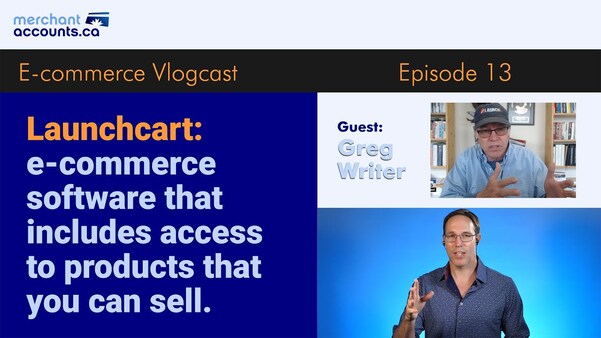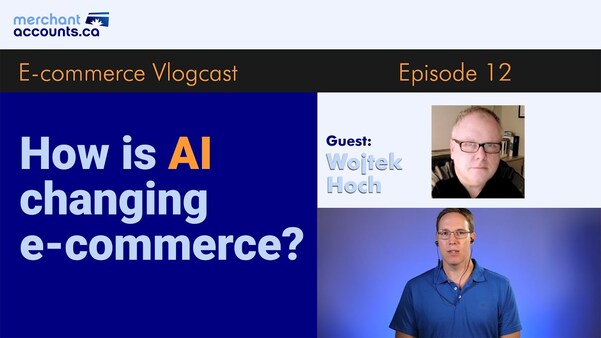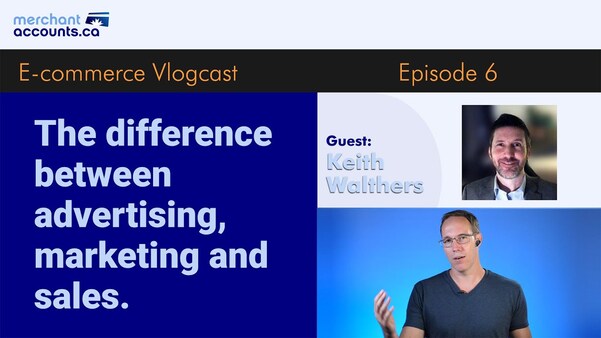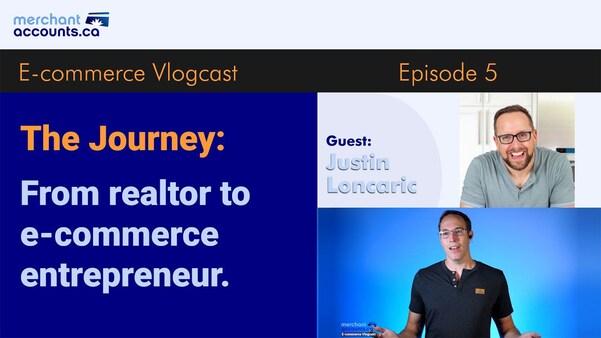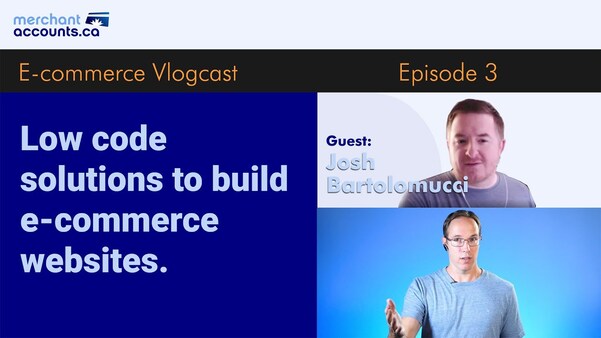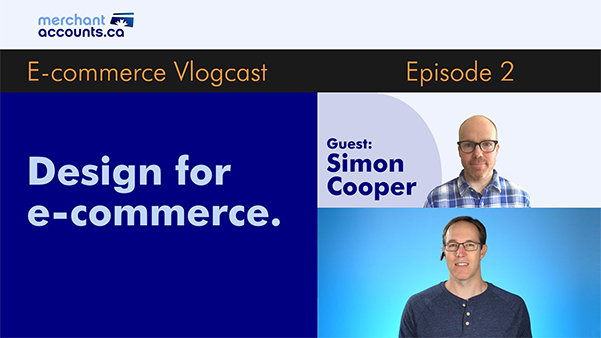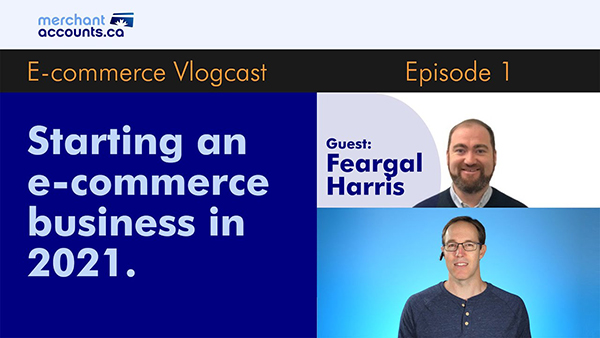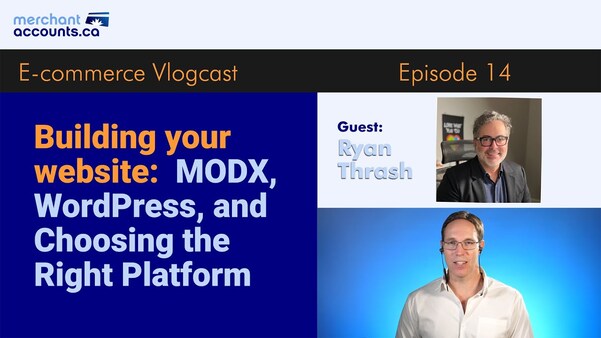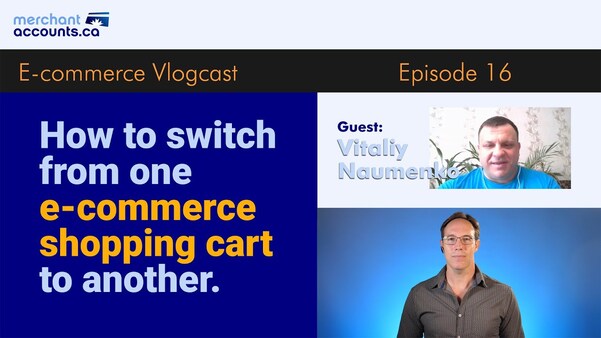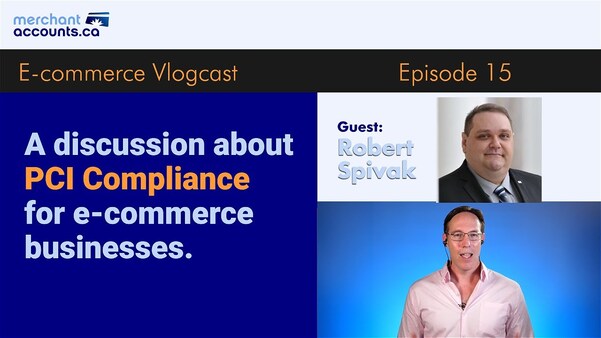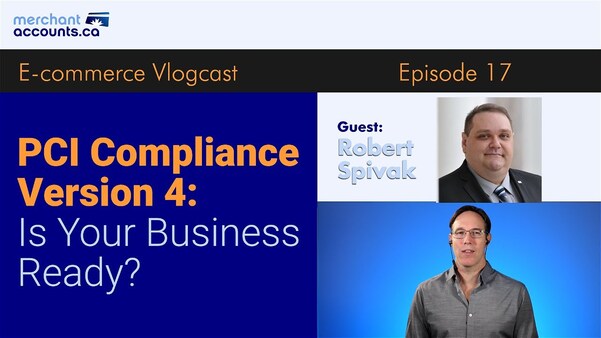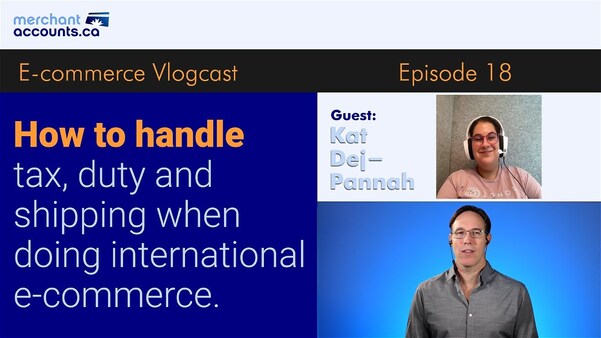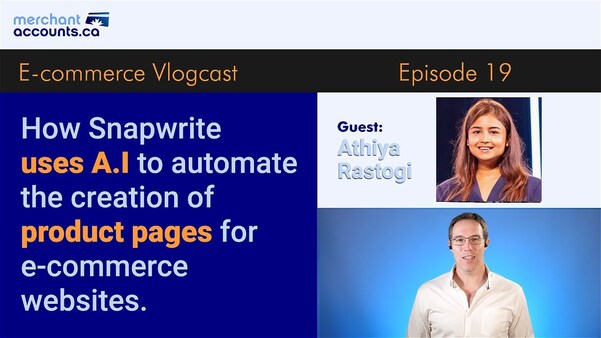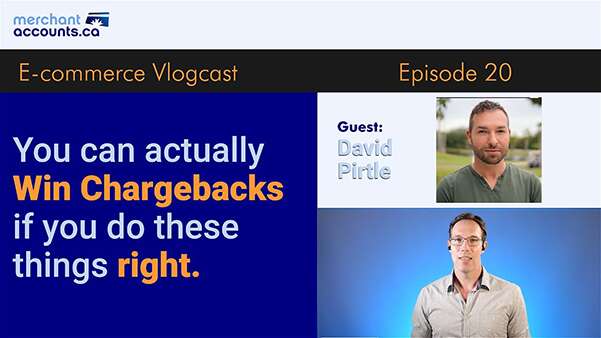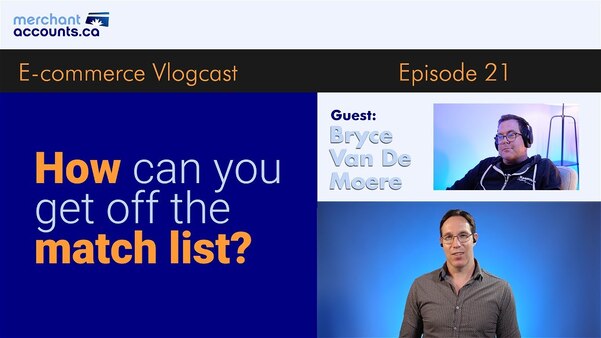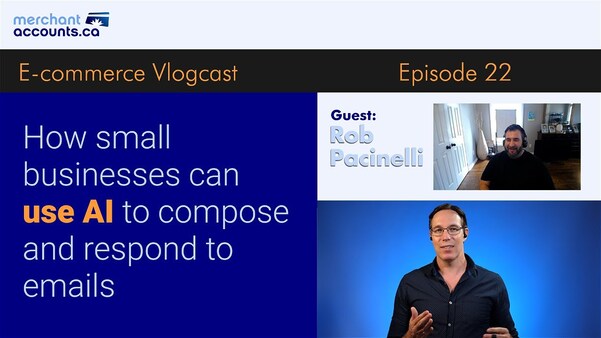May 09, 2022
by David Goodale
The importance of trust in technology, sales and relationships
(Slightly edited from video transcript for greater readability)
David Goodale: 00:02
Hello, David here at Merchant-Accounts.ca with another episode of the vlog. Today we're going to be talking about how to solve complex problems, the currency of trust in sales and business. So for the past 30 years, I don't know how long online businesses have tried to create trust with their customers without trust people don't purchase. So how do you build trust? How do you maintain trust? Especially if you're a small company, if you're Coca-Cola, everyone knows your name, that's one thing but what about ABC Cola? How do you build trust when you're a small and unknown business today, I'm talking to Chris Arrington of Metontec. Chris is an expert in broadly what I'd call problem solving his company. Metontec, helps businesses manage very complicated technical platforms and helps 'em to integrate, to talk to one another. But interestingly, as technical as that sounds, the business is very much about trust in understanding human relationships. So today I'm going to pick Chris's brain on how to engender build and maintain trust, and even what that really means. So, Chris, thanks for joining today.Chris Errington: 01:07
Hey, thanks for having me.David Goodale: 01:09
So I'm really excited to jump into this. Now. I know you have a strong sales and interpersonal background but you work at a technology company. How do those things tie together?Chris Errington: 01:22
I think everything revolves around, trust, like and trust, specifically, I think you can't do business with people until you like, and trust them. Technology is even scarier because it's, there's a great unknown there's a lot going on and, I mean, technology is not inexpensive either, so, you don't want to get into a, goodness, I don't know what the heck happened there.David Goodale: 02:18
And are you talking about like in the early in the sales cycle or like I, so I know with technology it's confusing and I think the more confusing a product or services inherently, there's a lot. I put it this way. If I'm going to a heart surgeon, hopefully I'm not but if I am going to a heart surgeon, it's like, so what are we going to do? What are, which ventricle are we going in through? I, or am I just going to trust that they know the more complicated something is the more trust there is, and maybe technology in these complicated technology projects where you're connecting systems very much rely on that concept? Is that true?Chris Errington: 02:54
Oh, absolutely. The more complex something is the more chances for things to go wrong and the more likely, wrong means more money. So just like when you're building the house, you've got blueprints and such that you want to, go off of. But certainly you need to trust in the company that's, executing, in anything really, it comes down to do you believe that this person can do what they say they're going to do? And, at the very beginning, you, you suggested, where or asked, where does that start? And I think it's everywhere. It's from the first, hi, hello, right along, to, to the very completion of the project and then the aftercare support. So trust is, something that is yep. Go ahead.David Goodale: 03:48
No, it's so interest, sorry for cutting in Chris. It's so interesting because it connects, like, even when you're talking, I'm realizing, like it's a part of your sales copy. It's a part of your advertising. It's very much a part of your human interactions with the people that you are working with that you're hoping will become clients or our clients. Uh, I'm going to, I'm going to start by looking at it on the initial basis. So I know from my marketing books back a zillion years ago, I've forgotten nine tenths of what I read but some of the stuff stuck with me in sales, there's something called fear of purchasing. So if somebody's afraid of anything, if there's any doubt in a person's mind, it's like a sales killer coming to like old school web stuff. It's like, don't have broken image links on your homepage or, or anywhere, or don't have spelling mistakes in your copy. Uh, and I think in terms of like engendering that trust, maybe from the very start, and maybe I'm going to talk about maybe putting even your materials or this is before they've started the human connection out there. Am I right in that? You have to put your best foot forward. Everything I guess is about en generating that trust from the very first interaction or when they even hear of you for the first time.Chris Errington: 04:57
Oh, absolutely. Right. From the first high. Hello. right, right. From the first time they see your logo. I mean, if, I'm driving on the highway and I see some logoed vehicle driving erratically or speeding, or, ramming up somebody's butt, I automatically would not trust that company. There it's sometimes it's not even interactions. Like, I mean, I'm not even having an interaction with that guy, or with that company potentially. But I've already got a, an idea of, kind of what they stand for or, it's even little things like that. But yeah, like you said, add copy, marketing, certain words that are used, there's all kinds of ways to break trust that don't even involve face to face interactions.David Goodale: 05:54
This makes total sense. Now I'm going to ask about your business specifically, because trust is such an important part of your business in a way that, that honestly, you wouldn't think of if you didn't know about it, because when you're hiring met contact to do something really complicated, and you're trusting that at the end, you settle your bill and you turn on your computer and whatever you tried to do work. So how does met on tech or you go about building trust with its customers, because a lot of it's like, you're saying, Hey guys, we're qualified. We can handle this but how do you really get that message across?Chris Errington: 06:28
I think it starts right from when I meet somebody initially. I rarely, push my company on anybody. So a lot of sales people, want to hand you their card and, can I follow up with you? Can I call you, can I call you, can I call you, can I poke, poke? And, and that just doesn't, I don't think that build, yeah, it's a hard sell. It, doesn't build trust. And so, so me, I'm like, this is what I do. This is what I have, I'd rather get to know me first versus what I can do for you. And let's see if we can, build a relationship here. It's never about what I can offer them. It's like, what do they need? Because maybe it's not something I offer.Chris Errington: 07:14
It's maybe something that, they bring it up and go, oh, Hey, well I need, credit card processing services. I'm like, oh, I know the guy you need to talk to. So it's not necessarily me filling their need. It's just listening to them. And, and again, starting off with that relationship, building it up. And then to the point where, I am involved in a, in a business relationship with a customer. even this morning, I had a call where it's, we want to clearly define what needs to happen. So I've already got a relationship, a really good relationship with this customer. And even still, I want to make sure we stay friends. So one of the things is we clearly define the scope. This is exactly what needs building. Just like, Hey, we're going to build a house. If you want to add a, a pool house on after the fact, no problem. That's just extra. It's more effort. So having a clearly defined scope in the technology world, I think is a, is another good way to keep and maintain trust.David Goodale: 08:13
That makes sense. And that maintain trust is really interesting trust, unfortunately, is one of those things that's difficult to build, I think, and quite easy to lose. So what are some of the ways like we all know, not like don't be in ethical, don't, don't go and do something stupid to be quite honest. Like, what are ways that you have seen other businesses go about destroying trust? Like what, how do you, I don't want to ask the question with a negative connotation but it's what I'm really thinking I'm asking is how do you maintain and even improve on that trust or alternatively, how do you mess it up?Chris Errington: 08:50
I think everything comes down to doing what you say you're done to do. integrity is everything I've taught my kids that from the time they could walk and talk, integrity is doing what you're supposed to do when nobody's looking, doing the right thing when nobody's watching. mm-hmmDavid Goodale: 09:17
Meet the expectation that you've created.Chris Errington: 09:20
That's correct. If you tell somebody you're going to be able to service them within 24 hours, then service them within 24 hours. The minute you're not doing what you say you're going to do, you're eroding that trust. And, I really look at trust like a bank account there's debits and credits. And, the whole goal is to keep, depositing into this trust account. So that inevitably there's never, nothing's perfect. There's Al something's always going to go wrong. And they always say that, kind of the, the, the quality of a company is really proven when something goes wrong, when everything's going, right. It's easy to be a good company when things go wrong. It's like, okay, well, how did you handle that? How did you deal with that? How did you address it? And, and how do you keep the customer, happy?Chris Errington: 10:04
And I think that's where really trust comes in. If I've got a, a lot of deposits in my trust account and something bad happens, I can go to them and say, Hey, listen, this is what happened, we're going to fix it. This is what's going on. And if, again, if you've got that a lot of trust in that account, then, usually you're going to end up, okay, it's when you've got low deposits or negative in that trust account, it can be the last straw for customers.David Goodale: 10:33
Oh, that's interesting because everybody makes mistakes. I've never met a person that hasn't made a mistake. Uh, and so building that trust it's like, because you shouldn't, I guess be expected to be perfect. It's just like, I don't know, stupid example. Like, if your job is to wash a Ferrari and you picked up some gravel in the, in the, in the Shammy and you put a tiny little scratch in it, that's different than, eh, you just joy ride it, like in Ferris, Bueller's day off. Right. So I guess you're talking like bill put good will in the tank. Uh, so, so I'm interested about that because in my industry, for example, and I'll bet in your industry, the fact I'd like to know about your industry but in my industry, there is a very, very, very high cost of acquisition for a new customer. And in most industries are many industries. The lifetime value of that customer is like so incredible because when you lose a customer, because of losing the trust, you're losing a lifetime of revenue and I've never understood why so many businesses have policies that are just like counterintuitive. You're going to lose this business. Why would you make this mistake?Chris Errington: 11:43
Yeah, it's funny. I've, I've always said, when you ask people about cell phone companies, as an example, you either love your cell phone company, or you hate them. Like they, you either have a good story or a bad story, and there's rarely an in between. And, and it's not like one is better than the other. They all have the same good and bad stories. And I always thought like, if you were a cell phone company that, just came to people every month and said, Hey, Dave, you went over your bill. What we did was we bumped you to this category so we could reduce your bill and not overcharge you. I mean, that would blow your mind because it's so different from the way the world works. And, I just think that, companies are shortsighted. They look at the almighty buck and Hey, I'm making this amount. And, I just don't,David Goodale: 12:32
Hey, Chris,Chris Errington: 12:33
Not everything is with the bigDavid Goodale: 12:34
Companies thatChris Errington: 12:37
Short side in that I think so, no, I mean, there's, I've worked for all kinds of different companies and, I've had all different kinds of companies, big, small, startup, established, and it's across all different kinds of verticals. And I've seen it everywhere where, one company, that I worked for, really focused on customer service. I mean, they went over the top for it. I mean, if you weren't happy, we did everything we could to make you happy until you said, Hey, thanks. I am happy. And then there was a, an ownership change and the new owner came in and went, hold on a second. This cost us a lot of money to keep these customers. Let's just find new customers. And the, the quality of service really plummeted dramatically and not coincidental.Chris Errington: 13:26
David Goodale: 14:11
Interesting. Yeah. That's interesting. So I'm curious to, so when I have these chats with people, one of the things that I like to talk about, and I try and extract out of them are like hard one lessons. It could be an example where you, or a customer, or there was some sort of mistake and you could have handled it better, maybe in relation to trust, maybe in relation to sales, you're not on, on the hot seat to answer this either but do you have any like insight in, like, because obviously you have a strong philosophy about like trust and integrity in sales and in life, is everything even talked about your kids but like, how did you get there?Chris Errington: 14:51
Ooh, that's a good question. I don't know. I think you just, each person has their own kind of moral code. And, I can't say that I've always been like this it's O over my life. I've, I've, I mean, you change things that are important to you and it's just, I think probably when I became a father, it's really important to me, for my kids to have that level of integrity and be people that are, I mean, you're trying to raise good men and women and I think you want to raise 'em the right way and they need the right example. So, I really think you need to live it if you're going to preach it. And, so for me personally, I 've just found too that, in sales specifically, I think there's two ways to go about sales and one is I can screw you or trick you or con you, or, or whatever it is sell you.Chris Errington: 15:49
And then you're not, after the fact you realize, shoot, I bought, yeah. I bought something that I don't need, and that guy ripped me off and whatever. And I gotta, so if I'm that person, I gotta keep finding new people to screw or finding new people to sell or finding, that it's, that never, your funnel's never full, the other way, build relationships, build trust, and their long term, potentially forever friendships even, forget just business relationships. And I just, I just made a conscious decision that's the way I want to go. And, and do I lose some sales that way? Sure. I do. you know, do people take advantage of me? I would tell everybody you'll be able to take advantage of me once it'll happen. One time. It'll never happen again, though.Chris Errington: 16:38
because we'll just never do business again. And, and I just think that's, I look for companies that I want to work with that have those same kind, that same kind of moral code. And then it's a two way street. So I trust them. They trust me and, we're all on the same path. So I just found that's the way I want to do business and the customers I want to do business with. So but to go back to your other question, oh, no, I was just going to say to go back to your original question, was, was there ever a negative that, I could think of and I can distinctly remember one where, I'm very, so when I'm a salesperson, or acting as a salesperson for a company, the customer, I I'm kind of the middle man. So I have an obligation to the company. I also have an obligation to the customer. And I have a very fierce devotion to my customers because of this, level of trust that I want to maintain with them. So if my company is not delivering what the cus, what I've told the customer, they're going to get, I'll go after my company, very, fiercely, becauseDavid Goodale: 17:51
Put you odds with managing, they've told cops in the wrong situation or the wrong company.Chris Errington: 17:55
Oh, certainly. Oh, certainly to the point where, the one owner of the company that I, that I was dealing with at the time told me, no, you need to go and lie to the customer. I'm like, I just won't do that. And yeah. ended up, ending that employment, not, not far after. And, now the customer and I are still friends to this day and we still do business together because I went to him and said, Hey, this is what they want me to do. And I'm not going to do it. So heads up, this is what's going on.David Goodale: 18:27
And honestly, Chris, like someone like you can't, can't thrive in an environment like that because you you're going to with her, you know?Chris Errington: 18:36
Yes. Well, it's just, again, if it goes against your moral code, it's just not going to work. So but I mean, short term, it didn't work out because obviously I'm, I stopped working at that company but long term, I've, I'm still friends with that customer to this day, so, and we still do business together. So itDavid Goodale: 18:59
That's really, that's really interesting when you were speaking about this, I could also like it's not your first day in business. It's not my first day in business. And some of the, some of these lessons arrived at over time. I had an employee one time and she's the sweetest person like genuinely but what would happen is she, she wasn't confident in her technical expertise. So people would ask a question and she just blurred out an answer because she'd be too afraid to say, I don't know. Which is like one of the things I think you learn when you're really like young and getting into business, it's like the best answer you can give someone is, I don't know, Hey, you stumped me. Congratulations. I don't know. So I think that also ties back to confidence and where you don't know something don't be open with your customer. I think because they'll be accommodating, they're not expecting perfection out of you. They're just trying to get you to help them as best as you're capable.Chris Errington: 19:58
Oh, absolutely. saying, I don't know, or I'll get back to you is way better than, than flirting out some answer.David Goodale: 20:57
So, well, I would think, especially in your line of business, because you're literally dealing with complicated technical messes for lack of a better, explanation. So probably it's more like you're, you're sent into the, into the weeds to like figure it out. Basically. It's probably part of what Matton tech does basically.Chris Errington: 21:17
Oh, I am routinely the dumbest guy in the room and I'm fine with that. And, and it's, I have no issue saying, Hey, I don't know this, this is my guy. He's the expert on that? or that's a great question, Dave. I can't give you the right answer. Let me get you Johnny, who can get you the right answer. or if you know, I try and match, so if there's a, chief technology offer officer, let's get my guy, and kind of match them up. So it's like, man on man defense, it does not have to be me. I do not need to have all the answers. I think everything comes down to making the customer feel comfortable and trusting that we're going to do what's best for them. SoDavid Goodale: 22:01
Right. That, that makes sense. And I guess it's a matter of also just like letting them know that, that you're going to be there with them through the discovery process. You're not going to tell them you're let, basically you're a lot of it is setting expectations, like right from the get go, because where they come to you with this stuff, letting them know from the start that you're not going to know a lot of it but you have the right team that can get the right answers for them.Chris Errington: 22:24
Yeah. And, and I've always told people, right? I mean, every company I've ever worked for, I'm your guy. So you have anything, burning questions, something's bugging you. You're happy about something. You maybe you don't like somebody on my team, no problem. You don't like me. No problem. I have no issue passing you on to somebody else. Everything is about that customer. But if you give your phone number and say, Hey, call me at two in the morning. I mean, don't be surprised if people test you. And uh, yeah. I mean, whenever I've told people, Hey, you can call me anytime a day. If my phone goes off and I see your number, I'll answer it. Because I've told you, that's what I'm going to do. So never promise things you're not prepared to do.David Goodale: 23:06
That's good. No it's so one of the things that I talk to people on this podcast is they just say things that are so obvious but you don't think about it even though it is obvious. And I think that is a really fantastic one. Now I'm going to work a little bit more into your wheelhouse here, Chris, because I want to talk about technical stuff for a second. As you have an increasing increasingly complicated technical problem, the solution often I would assume becomes more expensive but in a sense, as a business, as a business owner, you're trusting that the thing that you're investing into is going to fix the problems. Companies sometimes invest a lot of money and in the end it doesn't come together and work. I know it happens fortunately. I've never experienced it personally but how does that happen? Is that, is that anything related to trust or is it more perhaps a, a breakdown in the process? How does that occur?Chris Errington: 24:02
Well there's any number of ways that could happen but um, not everybody has the same moral code. And so some people, if you tell them you don't know anything about a certain subject, they're going to try and, I guess increase the ticket, try, try and upsell you on things you may or may not need. So again, this is where trust goes two ways. Somebody can put their trust in you but then you gotta do right by them. Anything you do to erode that trust. So a number of times I've told people, Hey, you don't need this. And they're like, no but I want it. And I'm like, okay, you, you don't need to spend the money on that. Well but Chris, I would like it. And the customer's always right. And I'm like, no problem. You can buy it if you want but I I'm telling you right now.Chris Errington: 24:54
And I just want to make sure, so it doesn't come down the road when you're like, Hey man, I don't need this. And I, Hey, I told you. So, I just want to be really clear with people about things. And um, with our company specifically, a lot of the projects we do use open source code, to bring down the cost for people. You know, if there's no sense or if there's no value to you in, in spending this for a, a product or a solution that's going to, uh, fix your problem, then why do it? SoDavid Goodale: 25:25
How Chris, how do you get into the situation? Sorry to cut him. But how do you get into the situation then? Where a company invests half a million dollars in something, and it doesn't work. Like I can't fathom but I know that stuff like that happens. Like where, where does that go wrong? But I'll even qualify that just a little bit further because I had a client that hired a really big shopping cart, software platform that I won't mention. And they went in, this is a, a mid-size business, like, less than 10 employees, this is big money to them. And they spent, I think before they pulled the rug out on it was 80,000 us. And the thing just didn't work it like, is that common? Because I know this is your area. And it's like, it's not really the topic of our conversation today but I have you here. How does that happen? And how do you avoid it? Especially like, I'm a nerd. Okay. I, you won't lose, I don't code anymore but you won't easily lose me in a conversation or a, or a process. But especially for someone who might have more of an administrative or, or, or, accounting or whatever background, how can you protect yourself? What what's going wrong in these situations?Chris Errington: 26:31
Well, I think when, when a company sells a specific product, so it doesn't matter what it is. you know, if I, if I sell pens and go, Hey, what about pencils? Well, shoot, I don't offer pencils. I'm going to tell you every reason that pencils are bad and you should buy a pen when really a pencil might be the right product for them. And I just firmly believe that if you always have the customer's interest in mind, even if it's not my product or even if it's not my solution, that'll come back to you. And I think if you do it the other way and you sell the person, the pen when they really need the pencil, I think that comes back to you too. There's something to be said about reputation and I've, again, I've got a sales career going over, gosh, it's 25 years now.Chris Errington: 27:27
It's I used to, I remember what people used to say, man, I've been in this for 25 years. I'm like, wow, that's long. And, and now I'm getting to the point where I've been saying that but I but I've worked in a number of different companies across varying verticals, very, I mean, highly different verticals, from everything to, selling products, door, to door, to fitness, to hot tubs, to HVAC, to industrial automation, to big steel mills and such, and now, technology solutions. my reputation's pretty solid. There's not a lot of people that, I 'm walking down the, the aisle at the grocery store and you know, I see someone I'm like, shoot, I gotta turn around and go the other way. I just don't ever want that to happen. I don't want, to be walking with my kids and, somebody walks up and goes, Hey, your dad's a so and so, right.Chris Errington: 28:25
I want them to come up and go, Hey, kids, your dad is one of the greatest dudes you're ever going to meet. He helped me with this. And he helped me with that. And, and that comes down to doing the right things for the customer, from the get go. So a lot of companies get kind of, because they don't know exactly. They think that the more expensive solution, because it's more money, it's obviously gotta be better. And that's just not the case. I mean, you can spend a million dollars on an E R P in the technology world and it's not going to solve all your problems. in fact, I I'm working with a company right now that called me specifically to implement an E R P Hey, we've got X amount budgeted for this. And I said, okay, based on what you're telling me, you don't need this.Chris Errington: 29:05
And I can probably do it for about, a third of the budget you're talking about. And they were like, hold on a second. We just told you, we're going to spend this. And you're suggesting a solution that's down here. You know, why would you do that? I'm like, well, because I don't want this to be a one night stand. I want a long term marriage. And I don't want just you. I want your friends. And when you're, at a barbecue and your friend's company comes up and they say, Hey man, wow, we got this problem. This problem, you gotta call Chris. Chris is your right. And, and for them to say that with confidence, yep.David Goodale: 29:41
It's the currency of trust. I got the, that's what we're, that's what we're talking about today. Although I'm going to throw a curve ball at you, Chris. And I always bust this question outta my podcast,becauseI never know it's coming back. I don't think you're prepared for it. I always, it, this can be related to e-commerce but it doesn't have to be e-commerce it can be business. What's your best secret weapon advice you would give to a business owner and you have car blo on this but like, this is going to your well, and one of your secrets, if you'd be so kind is to share it. If you, if you have one,Chris Errington: 30:15
Oh, for sure. Uh, everything comes down to relationships. Absolutely everything people buy from people they like and trust super easy. If they like you and trust you, they will typically buy from you. They may like you but not trust you. They may trust you but not like you. But if you have those two things and it doesn't, you could be selling, hot dogs on the beach. I mean, people get to know you like you entrust you, they're going to keep buying your hot dogs. It's it spans across all businesses, all verticals. It doesn't matter if you're dealing with the janitor or the CEO. If people like and trust you, they will do business with you.David Goodale: 31:02
So it sounds to me like business to you is very personal. Is that, is that an accurate statement?Chris Errington: 31:10
Oh, I 100%. I look at everything I do as trying to help my friends solve their problems so they can grow. And if they grow, I grow and if it's not win, win for me. So if they're not winning and I'm not winning and potentially the customer's not winning, like so a win, win, win, then I just, I just wouldn't do it. If I'm going to win and they're going to lose, then there's no point. It's very personal to me because the people that I end up doing business with, I have long term relationships with. And it's kind of interesting. I remember a friend of mine long time ago. Uh, very wealthy guy did very well for himself. I said, what was it that kind of spurned you or spurned you spurred you on to be, successful?Chris Errington: 32:00
And he said, honestly, when I had my daughter, I realized that someday she was going to need something and I wouldn't be there. And I wanted her to be able to call if she was in Texas stuck somewhere and she had a flat tire or something that there'd be somebody she could call that would come and help her right away. And, I thought about it and I'm like, that's kind of neat. And so I've just built relationships all around the world. And I've got people. I mean, if you were in Dallas, Texas, and you were stuck and you say, Chris, who do I call? I'm like, oh, you call Randy Kelly. Uh, he's a great friend of mine. And, and, he'll, he could help you. If you were in, Portland, Oregon, I'd say, Hey, call Shane GRA. He's solid as the day. And, and he'll, and he'll help you out. Australia, Europe, all over the place. I've just, I find good people and I hold onto them. So, yeah, it's very personal for me.David Goodale: 33:02
Uh, I'm, I have a very similar belief for you. I always find, anybody that says it's business as business, to me, that's like, that's somebody that doesn't know a lot about business that's or somebody that has a failing business. I don't understand. I know there are people that, maybe, maybe it's a more commoditized type of business. If you look at humans as commodities and a turns style but anyways, I guess that's not how, how neither you nor I would, would choose to run a business. Well, yeah. You know,Chris Errington: 33:31
Chris and it's yeah, go ahead.David Goodale: 33:34
No, no, you go ahead please.Chris Errington: 33:37
I was just going to say it's um, the reason that people do business that way isbecauseit's worked and it works. I mean, Walmart, doesn't not pooing on Walmart by any means but you know, Walmart doesn't care if I stop going there because somebody else is going to keep going there. We don't have a personal intimate relationship. Whereas, my friends who own a baseball store here in, in Burlington, I know them personally, I know their kids names. I know them very, very well. If I stop coming in there, theyDavid Goodale: 34:33
Well, that, that makes sense to me. And I think this has been an absolutely fascinating conversation about the importance of trust and why it's so overlooked and I definitely learned a lot and you also reinforce things that I believe it's nice to know that I'm not the only one such as businesses business is actually very personal but Chris, thanks so much for, for joining today. If folks want to get in touch with you or learn more about Metontec, how could they get in touch with you?Chris Errington: 35:03
Uh, you can call me directly. So (289) 208-6324. You can reach me at, cerrington@metontec.com and you can find me on LinkedIn. I'm pretty easy to find. So again Chris Errington, E R R I N G T O N but uh, look forward to meeting anybodyDavid Goodale: 35:25
Wonderful, Chris, I really appreciate it. Thanks so much for all your advice and insight today.Chris Errington: 35:29
Thank you for having meDavid Goodale: 35:31
Have a good day.Need professional guidance?
Contact us for a free one hour consultation.
Can I Help Lower Your Processing Fees?
If you found this content helpful, will you give me the opportunity to quote on your business?
View Rates


